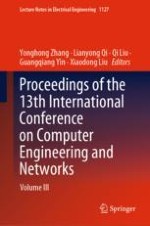2024 | OriginalPaper | Buchkapitel
An DAG-Based Resource Allocation Mechanism of Federated Learning for New Power Systems
verfasst von : Jiakai Hao, Guanghuai Zhao, Ming Jin, Yitao Xiao, Yuting Li, Jiewei Chen
Erschienen in: Proceedings of the 13th International Conference on Computer Engineering and Networks
Verlag: Springer Nature Singapore
Aktivieren Sie unsere intelligente Suche, um passende Fachinhalte oder Patente zu finden.
Wählen Sie Textabschnitte aus um mit Künstlicher Intelligenz passenden Patente zu finden. powered by
Markieren Sie Textabschnitte, um KI-gestützt weitere passende Inhalte zu finden. powered by
